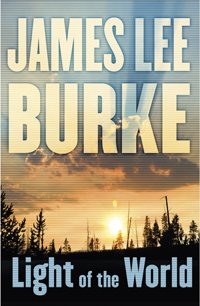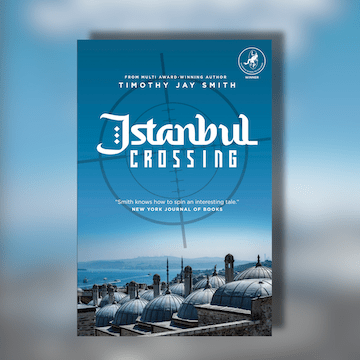This is the 20th in a long and successful series featuring Dave Robicheux, a haunted and intense police officer from the New Orleans area. The author gives us a change of scenery in, though, with Robicheux and his unpredictable friend Cletus Purcel leaving behind the humidity of New Orleans to breathe the raw mountain air of a springtime Montana. Dave, wife Molly and adopted daughter Alafair, are joined by Clete and his recently discovered daughter Gretchen Horowitz, who is an ex-mob killer and general loose cannon.
They are staying as guests at the home of former convict, union activist and now bestselling author, Albert Hollister. Their intentions to simply enjoy the fishing come to nothing, as they are drawn into a chain of events involving the death of a Native American girl adopted by a wealthy family, and the savage murder of a lecherous policeman. A strange and damaged itinerant rodeo rider called Wyatt Dixon is initially suspected of the latter crime, but as the story moves on, it becomes clear that there is more to Dixon than meets the eye.
Hovering in the background is the alarming possibility that sexual predator and multiple murderer Asa Surrette, who was presumed dead after his prison van collided with a fuel tanker, didn’t die, but is very much alive. Before Surrette’s apparent death, Alafair, a promising author, had planned to write a book about his crimes and interviewed him several times. Disgusted by the man and what he told her, she abandoned the project, but is horrified to find a note on her car windscreen, almost certainly penned by the killer. With the local police either criminally corrupt or incompetent, it is left to Robicheux, Purcel, and the deadly Gretchen to protect Alafair from a seemingly invulnerable psychopath.
Away from the superbly intricate plot, the spine of this story is the symbiotic relationship between Dave and Clete. In earlier books such as The Neon Rain and Black Cherry Blues, Purcel was a more peripheral figure, bursting into the action on occasion, but then disappearing. In recent stories, in particular Creole Belle, Purcel has become more central, particularly with the arrival of his long-lost daughter, Gretchen. Robicheux and Purcel are two different species. Dave is (now) sober, cautious, happily married, thoughtful, and mostly acts within the limits imposed by his policeman’s badge. By contrast, Clete is a drunken, reckless, libidinous and impulsive whirlwind who only obeys the law when it suits him.
Over the years we have marveled at Wimsey and Vane, Holmes and Watson, Morse and Lewis, Spenser and Hawk. But times change. Things move on. The rapport between Robicheux and Purcel is unique in modern crime fiction. Lies are told, webs are spun and fictions are created. There are times when neither man can look the other in the eye. And yet, in the end they are indivisible. A force of nature. A shared intensity of purpose emerges which will overwhelm some of the most vile and manipulative degenerates ever to disgrace the pages of a crime novel.
The author has created not just two super-heroes, but now – with the introduction and development of the Gretchen Horowitz character – we have a third. Light Of The World fizzes with tension and excitement, and apart from being a gripping read, it is shot through with psychological insights and beautiful prose. Burke is not a young man, but it is to be hoped that his health and creative spirit remain with us for a several more books yet.
Orion
Print/Kindle/iBook
£9.99
CFL Rating: 5 Stars











Sort of tempted by this, but I think I’m done with Robicheaux.
JLB is unlikely to kill the golden goose so to speak, but I stopped believing in Robichaeux as a credible character a fair few books ago.
I’d tune in if Dave got killed off and Clete went out as an avenging angel causing all sorts of mayhem, but otherwise nah.
One could certainly make an argument that, after twenty books, James Lee Burke has run Dave Roubicheux and Clete Purcel into the ground. Age alone is becoming a problem; these Vietnam vets are in their mid-sixties, which is a little old to be beating up bad guys, especially ones half their age.
But even though this series is showing the strains of age, Burke never lets us forget we are in the hands of a master storyteller. His descriptive prose is so good that he can take a story that most authors would tell in 250 pages, and double it, and never tax the reader with an unnecessary word.
Light of the World may not be Burke’s best, but it’s still better than 98% of crime fiction out there. I anxiously await his next novel.